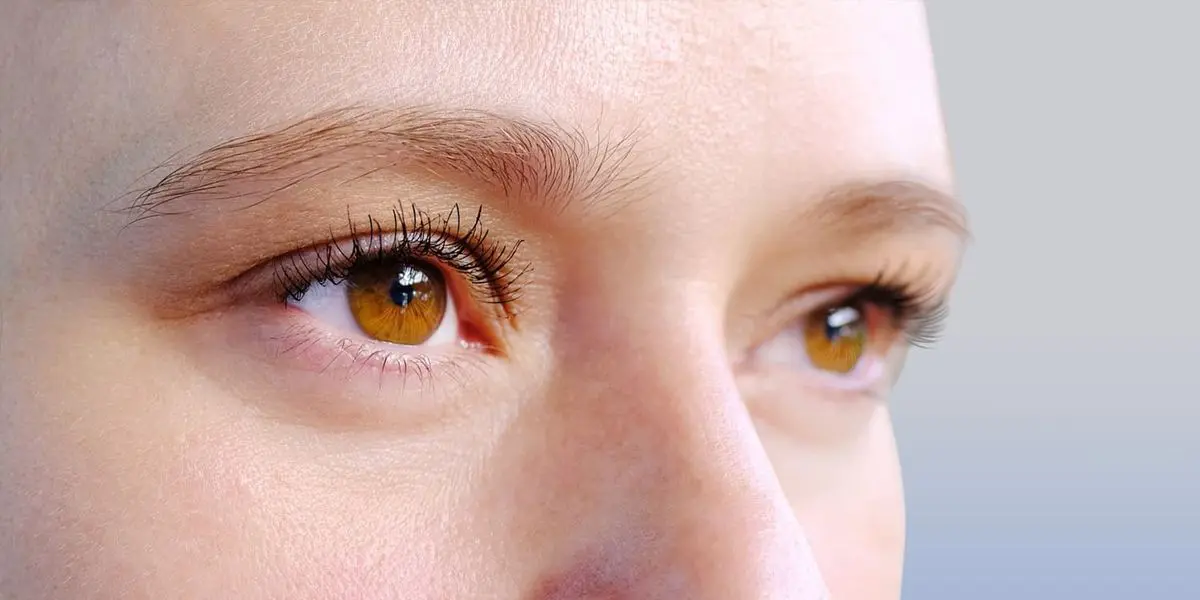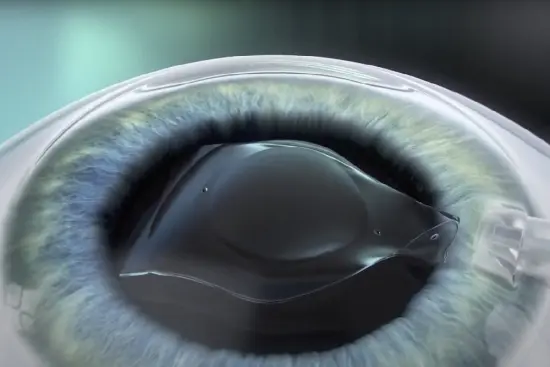What Does Constant Blinking Mean?

Constant blinking may be a warning sign
Blinking is a natural reflex that keeps the eyes moist and helps remove dust and small debris. On average, a person blinks about 12 times per minute, with each blink lasting about half a second. However, if your eyes blink continuously or uncontrollably, accompanied by slight spasms in the eyelids or facial muscles, it could be a sign that something needs attention.
This phenomenon may last only a few seconds and then subside, but in some cases, it repeats many times a day or lasts for minutes, causing discomfort and concern.
Why Do Your Eyes Blink Constantly?
Constant blinking usually stems from physiological factors such as eye strain, lack of sleep, or stress. However, in some cases, it may also indicate an underlying eye or neurological condition.
1. Stress and Fatigue
Mental stress is the most common cause. When you are under prolonged tension, your nervous system becomes overactive, stimulating the muscles around the eyes and causing repetitive blinking.
Additionally, long periods of screen exposure can lead to eye dryness and fatigue, triggering frequent blinking as a reflex reaction.
2. Lack of Sleep
Insufficient sleep reduces control over facial muscle movements. As a result, the muscles around the eyes may function abnormally, leading to spasms or excessive blinking.
3. Excessive Caffeine or Stimulant Intake
Caffeine stimulates the central nervous system, increases heart rate, and may cause eyelid muscle spasms. Drinking too much coffee, strong tea, or energy drinks can make your eyes blink repeatedly throughout the day.
4. Dry or Inflamed Eyes
Dry eyes due to aging, prolonged contact lens use, or conditions like keratitis or allergic conjunctivitis can trigger blinking as the eyelids attempt to rehydrate the cornea.
5. Side Effects of Medications
Certain medications such as antidepressants, antipsychotics, or those used to treat Parkinson’s disease can cause involuntary eyelid twitching.
6. Nerve Damage or Tumors
In rare cases, prolonged blinking may be linked to damage to cranial nerves V or VII, or to a tumor in the ocular or temporal area pressing on the motor nerves. In such cases, it’s important to consult an ophthalmologist or neurologist for early diagnosis.
Who Is More Likely to Experience Constant Blinking?

Constant blinking may be a warning sign of vision problems.
This condition can affect anyone, but it is more common among:
- People who suffer from prolonged sleep deprivation, stress, or overwork.
- Those with myopia, astigmatism, or hyperopia who do not wear properly corrected glasses.
- People suffering from anemia or mineral deficiencies (magnesium, calcium) that make muscles prone to twitching.
- Elderly individuals with dry eyes or reduced tear production.
- People taking high doses of antipsychotic or sedative medications.
Is Constant Blinking Dangerous?
In most cases, blinking is a harmless reflex that resolves after rest. However, you should see a doctor if you experience any of the following symptoms:
- Eye pain, redness, swelling, or drooping eyelids.
- Eyelids close tightly with each spasm.
- Blinking lasts for more than 1–2 weeks without improvement.
- Twitching spreads to the cheeks, lips, or one side of the face.
- This may indicate a motor nerve disorder, facial spasm syndrome, or chronic blepharospasm that requires medical treatment.
How to Relieve Constant Blinking

A good night’s sleep helps the eyes relax and recover after a long day.
To ease this condition, you can apply the following measures:
- Get 7–8 hours of sleep each night.
- After every 60 minutes of screen time, rest your eyes for 5–10 minutes.
- Maintain a distance of 25–30 cm between your eyes and the screen.
- Reduce coffee, strong tea, smoking, and energy drinks to minimize nervous stimulation and eyelid spasms.
- Use artificial tears or lubricating eye drops to relieve dryness—especially if you work long hours at a computer or wear contact lenses.
- Practice yoga, meditation, or deep breathing to relax and stabilize the nervous system.
- Apply a warm compress gently over your eyelids for about 5 minutes to relax eye muscles and improve blood circulation.
- If you have myopia, hyperopia, or astigmatism, make sure your glasses are correctly prescribed and have regular eye checkups to prevent eye strain.
How to Prevent Constant Blinking
- Sleep well and maintain a regular sleep schedule.
- Eat a balanced diet rich in omega-3, vitamin A, B12, magnesium, and calcium.
- Reduce stress through light exercise or outdoor activities.
- Avoid rubbing your eyes, especially with unclean hands.
- Wear sunglasses when going outdoors to protect your eyes from UV rays.
When Should You See an Eye Doctor?
If constant blinking lasts for more than a week, is accompanied by pain or drooping eyelids, or interferes with daily activities, consult an ophthalmologist or neurologist for a thorough examination.
Your doctor may recommend:
- Refraction testing (to measure nearsightedness or astigmatism).
- Evaluation for dry eye or eyelid inflammation.
- MRI/CT scans if nerve damage is suspected.
- Botulinum toxin injections for chronic facial spasms.
Constant blinking is usually not dangerous, but if it persists or comes with other unusual symptoms, it could be a warning sign. Allow your eyes to rest, get enough sleep, limit caffeine intake, and seek medical advice promptly when necessary.

 vi
vi 07-Nov-2025
07-Nov-2025












 0916.741.763
0916.741.763 Appointment
Appointment